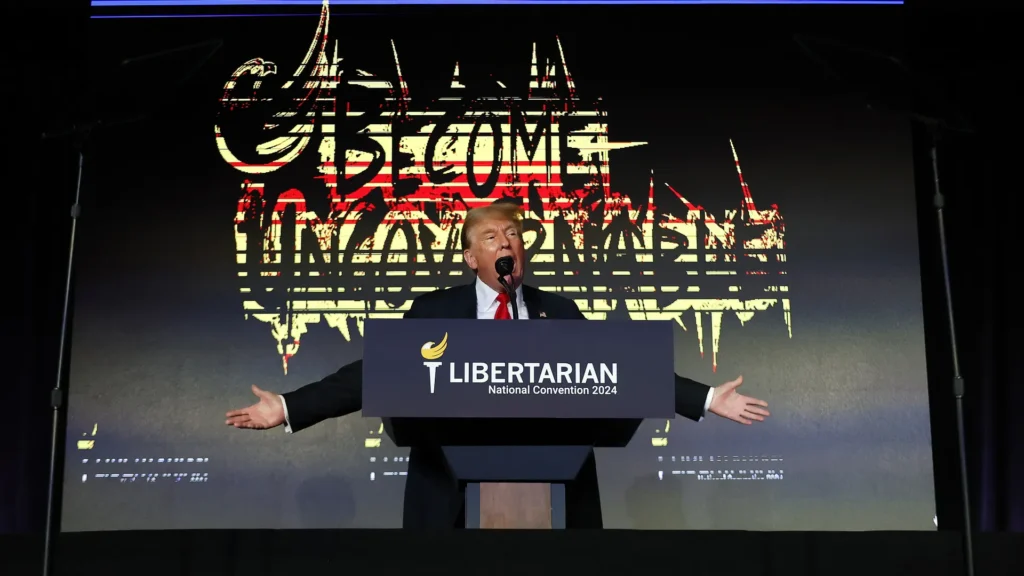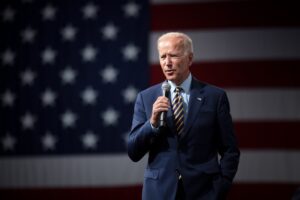Trump Pledges to Free Silk Road Creator Ross Ulbricht If Re-Elected

QUICK TAKE
- Donald Trump has pledged to commute the life sentence of Silk Road founder Ross Ulbricht to time served if re-elected.
- Ulbricht has already served 11 years of his two life terms plus 40 years sentence.
- Trump expressed strong support for the cryptocurrency industry, promising to defend it against regulatory crackdowns.
Trump Pledges to Free Silk Road Creator Ross Ulbricht If Re-Elected
QUICK TAKE
- Donald Trump has pledged to commute the life sentence of Silk Road founder Ross Ulbricht to time served if re-elected.
- Ulbricht has already served 11 years of his two life terms plus 40 years sentence.
- Trump expressed strong support for the cryptocurrency industry, promising to defend it against regulatory crackdowns.
In a bold move that has stirred significant attention, former President Donald J. Trump announced his intention to commute the life sentence of Ross Ulbricht, the creator of the infamous darknet marketplace Silk Road, if he is re-elected. Trump made this pledge during his address at the Libertarian National Convention in Washington, D.C., on Saturday night, stating, “If you vote for me, on Day 1, I will commute the sentence of Ross Ulbricht to a sentence of time served. He’s already served 11 years, we’re gonna get him home.”
Trump’s Support for the Crypto Industry
Just hours before his speech, Trump took to Truth Social to voice his support for the cryptocurrency industry. He wrote, “I am very positive and open minded to cryptocurrency companies, and all things related to this new and burgeoning industry. Our country must be the leader in the field. There is no second place.” He criticized President Joe Biden’s approach, claiming Biden “wants [the cryptocurrency industry] to die a slow and painful death,” and assured that such a fate would not happen under his administration.
The Case of Ross Ulbricht
Ross Ulbricht, who has been imprisoned since 2015, was sentenced to two consecutive life terms plus 40 years for creating and operating Silk Road. The marketplace, which operated from 2011 to 2013, allowed anonymous transactions, primarily for drugs, using Bitcoin. Ulbricht’s harsh sentence has been a point of contention, especially within the crypto community and among Libertarians, who argue that it represents a severe governmental overreach and a violation of his constitutional rights.
Ulbricht has garnered considerable support, with many viewing him as a martyr. In 2018, the Libertarian Party urged then-President Trump to pardon him. Although Trump granted clemency to 143 individuals during his presidency, including Ripple board member Ken Kurson, he did not extend this to Ulbricht, Wikileaks founder Julian Assange, or whistleblower Edward Snowden.
Reaction to Trump’s Pledge
Trump’s promise to free Ulbricht was met with enthusiastic approval at the convention, with many attendees holding signs that read “Free Ross.” The support for Ulbricht reflects a broader dissatisfaction with the severity of his punishment and a belief in the need for reform.
Trump’s Cryptocurrency Stance
At the convention, Trump made several pro-cryptocurrency statements, emphasizing his commitment to protecting the industry from regulatory crackdowns. He vowed to “stop Joe Biden’s crusade to crush crypto” and to ensure that the future of cryptocurrency and Bitcoin remains in the United States. He also expressed his support for the right to self-custody of digital assets and his opposition to the creation of a central bank digital currency.
“To the nation’s fifty million crypto holders, I say this: I will keep Elizabeth Warren and her goons away from your bitcoin, and I will never allow the creation of a central bank digital currency,” Trump proclaimed, to the delight of the audience.
In recent months, Trump has shown increased openness to the crypto space, making several supportive comments and becoming the first major party presidential candidate to accept cryptocurrency donations.
Conclusion
Trump’s pledge to commute Ross Ulbricht’s sentence and his strong support for the cryptocurrency industry highlight his evolving stance on digital assets and his alignment with the Libertarian values of individual freedom and limited government intervention. As the 2024 presidential election approaches, these positions may play a significant role in shaping the discourse around cryptocurrency regulation and criminal justice reform.



